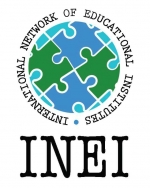Multicultural Education

About the IALEI research theme 2010
Multiculturalism has receded to the background of societies’ priorities!
A group of leading international researchers now conclude that education systems around the world need to put multicultural diversity at the forefront of their concerns.
“Today’s unprecedented global mobility requires of educators in the world to make multicultural diversity a priority in the education landscape” says Professor Yoon Hiwon from Seoul National University and chair of the ten country IALEI research team (2010). The results of ten national studies conclude that there is a serious risk to social cohesion if countries neglect the need for educational equality for all.
Population movements involve both privileged transnational elites and displaced refugees, asylum seekers and economic migrants. The effect of this is to increase the diversity of cultures and languages, race and religion in all nations. In addition to this movement of populations, a growing number of societies are recognizing the rights and strengths of indigenous peoples, people with disabilities and gender differences.
Cultural diversity is accelerated by the proliferation of information communication technologies which facilitate global interaction across cultures, languages and identities. The overall effect of these extraordinary developments is to spread multiculturalism to all parts of the world, beyond those societies which already have long experience of racial, ethnic, linguistic and religious pluralism.
The studies suggest this reality is marked by deep inequality and entrenched privilege, posing dramatic challenges to countries across the world. As a result, all children need to develop intercultural capabilities for negotiating across differences of identity, social justice, multilingual skills and anti-racist dispositions.
The researchers call on education systems around the world to embrace multicultural education within the specific contexts of their national setting. Teacher education, pedagogy and curriculum development, education administration and policy and research need to address the growth of multiculturalism across the globe.
The overriding goal should be to foster a pervasive commitment to equal and enriched educational opportunities for all. Without this, there is a gross waste of human capital and skill to all societies from the continuing failure to achieve equal educational outcomes for all.
Recommendations
Download and read the IALEI 2010 Recommendations.
With reference to these recommendations, the Chair of the joint IALEI research project 2010, Professor Hiwoon Yoon, gave the following comment in Educational Alliance Magazine no. 5: “The overriding goal should be to foster a pervasive commitment to equal and enriched educational opportunities for all. Without this, we face a gross waste of human capital and skill in all societies due to the continuing failure to achieve equal educational outcome for all”. Read the whole article.

Conference
At the annual meeting the IALEI members exchanged their findings and views on multicultural education. Their aim is to influence, identify trends and present recommendations on focal themes to their respective education ministries, governments, international agencies and funding bodies, fostering a pervasive commitment to equal and enriched educational opportunities for all.
Dean Cho Youngdal, College of Education, Seoul National University chaired the 4th IALEI meeting in Singapore from 5 to 7 October 2010 while the National Institute of Education, Singapore, provided the venue to host the Business Meeting and the 3rd IALEI Conference on ‘Multicultural and Intercultural Education’. Download the international conference programme. Read more in the NIE Newsletter December 2010.
Teacher education, pedagogy and curriculum development, education administration, policy and research need to address the rapid growth of multiculturalism across the globe. The results of ten national studies conclude that there is a serious risk to social cohesion if countries neglect the need for educational equality for all.
IALEI researchers engaged in the 2010 theme
The names of the researchers engaged in the 2010 project are:
Australia, Melbourne Graduate School of Education, University of Melbourne:
Professor Joseph Lo BiancoBrazil, Faculty of Education, University of Sao Paulo:
Professor Helena Coharik ChamlianCanada, Ontario Institute for Studies in Education,
University of Toronto:
Professor Reva JosheeChina, School of Education, Beijing Normal University:
Professor Zheng XinrongDenmark, Department of Education, Aarhus University:
Executive Director Christian HorstSouth Africa, School of Education, University of Cape Town:
Professor Crain SoudienSouth Korea, Department of Education, Seoul National University:
Professor Hiwon YoonSingapore, National Institute of Education, Nanyang Technological University:
Associate Professor Rahil IsmailUK, Institute of Education, University of London:
Professor Emeritus Heidi Safia MirzaUSA, School of Education, University of Wisconsin Madison:
Professor Amy Stambach and Assistant Professor Aydin Bal
Chair of this IALEI research team is Professor Hiwon Yoon, Vice President of International Affairs at Seoul National University, Korea.
